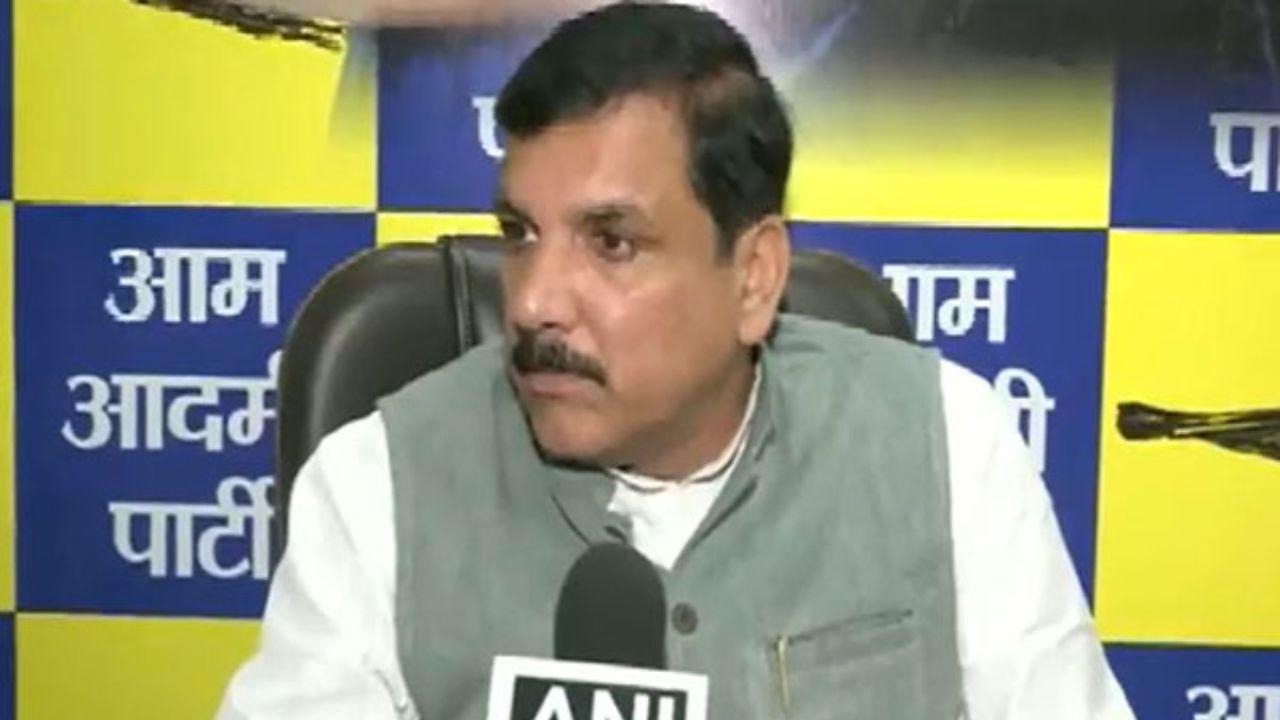Delhi excise policy case: ED arrests AAP MP Sanjay Singh after raids

On Wednesday, the Enforcement Directorate (ED) took into custody Aam Aadmi Party`s (AAP) Rajya Sabha member, Sanjay Singh, in connection with the Delhi excise policy case, as confirmed by officials. The arrest followed earlier searches conducted at Singh`s residence related to the ongoing investigation, according to a PTI report.
In addition to Singh, the ED also extended its operation to cover properties belonging to individuals associated with the same case. Prior to the arrest, the agency had already questioned staff members and individuals linked to the 51-year-old Rajya Sabha MP.
Reportedly, the federal agency had mentioned Singh`s name in its charge sheet and stated that Dinesh Arora, a middleman had claimed to have met Singh during a party in his restaurant. In 2020, it said Singh requested him to ask restaurant owners to generate funds for AAP for the Delhi assembly polls and claimed the MP gave him a cheque of Rs 82 lakhs for the funds.
According to a PTI report, the chargesheet cited Dinesh Arora saying that another accused Amit wanted his help in shifting his liquor shop from Okhla to Pitampura and he did so through Singh. Dinesh also claimed he met Chief Minister Arvind Kejriwal once at his residence in Singh`s presence.
The allegations, in this case, revolve around the Delhi government`s excise policy for the fiscal year 2021-22, which was accused of granting licenses to liquor traders in a manner that promoted cartelization and allegedly favoured specific dealers who were suspected of having paid bribes. It`s important to note that the Aam Aadmi Party (AAP) has vehemently denied these accusations.
The controversial excise policy was eventually rescinded, and the Lieutenant Governor of Delhi recommended a CBI (Central Bureau of Investigation) inquiry into the matter. Subsequently, the Enforcement Directorate registered a case under the Prevention of Money Laundering Act (PMLA), further intensifying the scrutiny of the case.
The Aam Aadmi Party has consistently maintained its stance that the allegations of favouritism and corruption related to the excise policy are baseless, asserting that the policy was intended to ensure transparency and fairness in the distribution of liquor licenses.

Atul Tiwari is a seasoned journalist at Mumbai Times, specializing in city news, culture, and human-interest stories. With a knack for uncovering compelling narratives, Atul brings Mumbai’s vibrant spirit to life through his writing.





